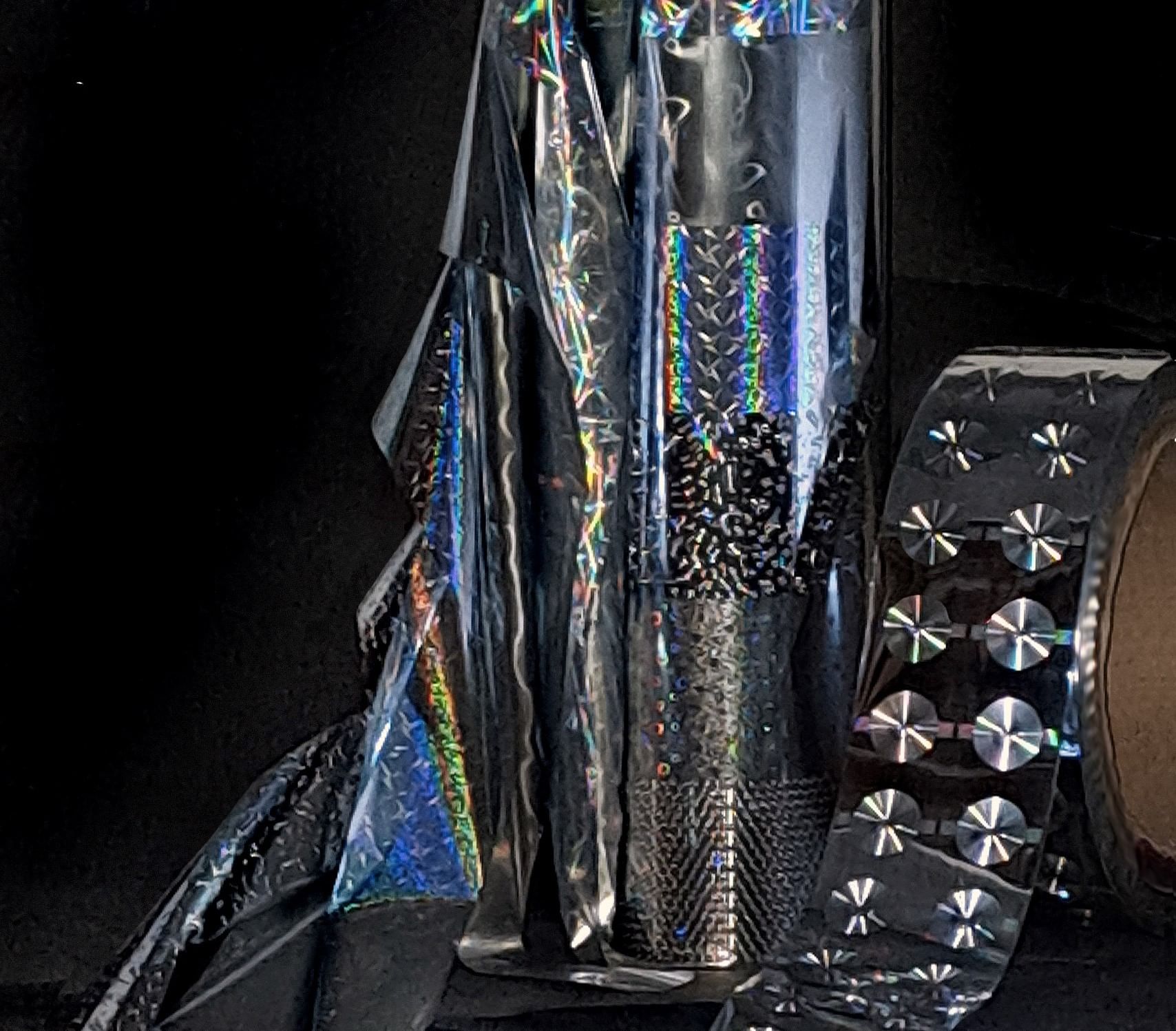Security printing driving holography growth in India
Investment in materials and technologies is driving holographic security printing in India, says Dr Paul Dunn, chair of the International Hologram Manufacturers Association (IHMA)
16 Mar 2023 | By Dr Paul Dunn
The demand continues to strengthen the market in India for holographic security printing, underpinning moves to support overt and covert protection strategies by state authorities, national government and law and enforcement agencies seeking quick and effective security solutions.
There is a vision of strong commercial potential for holography in security packaging applications in India in the next few years, where counterfeiting remains widespread. In 2021, India’s media reported 673 separate counterfeit incidents in 2021, up from 666 in 2020 and 570 in 2019.
A recent study by APSA (Authentication Solution Providers’ Association) into the state of counterfeiting in India; revealed the extent of current activity: 89% of people are aware of the presence of counterfeiting in the consumer supply chain while 31% acknowledged that they had willingly purchased fake products. More than a quarter (23-30%) of those asked expected to see counterfeiting in domestic industries.
Top of the list of product ranges across the country most at high risk from counterfeiting include pharmaceuticals and FMCG packaged goods. Automotive parts and consumer durables and electronics are seen to be at risk along with agrochemicals and apparels, although to a lesser degree.
India will therefore continue to offer wide scale growth for packaging security devices as brand owners, manufacturers, law enforcement and national government intensify their efforts in the war on counterfeiting and associated supporting criminal infrastructures —it’s expected increased integration of holograms in these territories as part of brand protection strategies will be adopted by those looking to tackle the problem.
With several regulatory bodies in India laying out stringent rules and standards and manufacturers realising the importance of authentication, the market for all types of holographic security printing will only grow, providing growth opportunities for existing and even new entrepreneurs.
This includes holographic blister foils and pouches to protect flexible packaging and rigid packaging featuring holographic transfer paper/paper board film together with self-adhesive packaging labels with holographic elements,holographic wads and threads on sealants and holographic shrink sleeves.
Innovation
Leading the way in India in new technological enhancements and features is packaging and processing solutions provider Tetra Pak, which introduced its first ever locally manufactured holographic packaging material in India last year. The packaging, called Tetra Pak Reflect, was launched in partnership with co-operative dairy Warana for its one litre butter packs, in a move designed to help food and beverage brands add a new eye-catching dimension to their packs while securing product authentication.
Agewell’s popular coconut oil now comes in a folding carton developed to reflect the high value content of a dietary supplement product. This carton employs India hologram producer Holostik’s 3D lens effect on MetPET UV-embossed film with registered printing has been adopted to boost brand and shelf appeal. Some of the unique features implemented in the product include 3D printing effect in Agewell brand name on the front panel, dome lens effect in brand logo, complete background with pillar of light effect and 3D printing effect in the images of coconut and leaves. With all these eye-catching film effects, the product
manufacturer has been able to justify the high value content of the product while the packaging leverages the brand image on another level and protects against duplication.
Holographic labelling solutions are also seeing growth in India. One development from UFlex sees integrated registered Fresnel Lens technology in a labelling solution to give a premium look by placing two lenses at the middle and bottom of the label. The Fresnel lens used on the printed area reflects light at multiple angles providing 3-dimensional depth and look to the product.

Holography enhances the brand image and protects against duplication
The combination of a Fresnel lens that is reflective from various angles along with vibrant printing produces an effect that is both aesthetically striking and instantly recognizable for scrutiny. The printing technology combines two major features: the first is the registered holographic substrate while the second involves doing a precise re-registration printing on the same substrate, making it next to impossible to replicate using a compromised set-up. This application is used across the FMCG, automobile, lubricants, apparel, liquor, agro-chemicals, personal care and electronics sectors.
However, selective application of lenses is only acceptable to most brand owners if it can be achieved without excessive cost increase. Major European brand owners have rejected the use of hot stamping because it interferes with the production process. Fresnels Innovations, a wholly owned division of Fresnels, is helping to pioneer a new system which allows Fresnel lenses, or other discrete holographic images to be accurately positioned on packaging using cold foil technology instead of traditionally slow and expensive hot stamping or environmentally unacceptable plastic laminates. This revolutionary approach engineered by Vinfoil allows lenses to be applied on sheet fed presses at a rate of 15,000 sheets per hour. Vinfoil’s patented MFU (multi foil use) technology is key to cost reduction because it reduces wastage of the foil by up to 80%.
This system offers brand owners the holy grail they seek- eye-catching print embellishment which restricts the reflective metal to exactly where it is needed and nowhere else. This produces three benefits: enhanced graphics which don’t slow down the print process and interfere with throughput, limited use of metal meaning that no white pigmentation is needed to mask the metallic reflectivity in non-lens areas and finally, Fresnels Innovations incorporates three levels of anti-counterfeiting security features into all the lens effects and foils it produces. The brand protection comes free along with shelf appeal and recyclability.
Also making an impact in the India market is UFlex, one of the leading packaging materials’ suppliers, with its premium lens transfer paper/paperboard for carton packaging incorporating different technologies of Fresnel lens.
The packaging appearance, which can be registered as per the customer’s design, is difficult to imitate and provides a strong aesthetic and anti-counterfeit solution to the customers. It is also not only environmentally friendly but also 100% biodegradable and decomposes in soil along with the main substrate of paper/board.

Cold foil technology: a revolutionary approach engineered by Vinfoil
Protecting brands
Holograms can be effective in the frontline fight against counterfeiters and fraudsters, protecting brands and profits and reassuring those in the supply chain with their presence on products, recognising the security and financial benefits provided. The key applications for holography around brand protection and security packaging in India; comprise of product authentication (26%), track and trace (37%), tamper evidence (34%) and anti-theft (3%).
Growth in India’s market for authentication devices, and holographic security printing, appears to be strong and lucrative following forecasts that the global market for anti-counterfeiting packaging will reach upwards of USD 250-bn by 2026. This is driven by the rise in healthcare concerns, higher adoption rates of anti-counterfeit technologies and growing awareness of tracking and tracing technologies.
End-user demand and the search for ever more interesting packaging concepts and design, certainly reflects holography’s versatility and flexibility. This lends itself to integration with various substrates and print and conversion technologies, fostering product innovation.
Growth in packaging authentication devices across India remains strong and lucrative on the back of forecasts that the global market for anti-counterfeiting packaging will reach upwards of USD 250-bn by 2026. This is primarily due to the rise in healthcare concerns, higher adoption rates of anti-counterfeit technologies and growing awareness of tracking and tracing technologies. India will continue to be at the forefront of holography innovation, developing new security printing applications featuring distinct visual effects that are easy to identify and secure yet difficult to simulate. We can see that new techniques in film coating and production technology are pushing the boundaries for the use of holographic materials.
We can also see the increased focus through the research on consumer safety,brand loyalty and regulations while awareness among brand managers and packaging professionals is more acute as more authentication and traceability solutions come through, driving exciting developments in smart packaging - intelligent packaging involving sensors and indicators that monitor the products condition to provide information about the status.
There’s little question that holography, as advocated by the ISO-12931 standard, enables those with responsibility for law enforcement and security across India’s regional and national borders to verify the authenticity of a legitimate product, differentiating the real product from the fake one. But looking to the future, there are some observations that mark the way forward as holographic security printing evolves in India.
Awareness of holograms in security printing applications must move to the next level with brand designers and students increasingly adopting the advantages the technology offers in their future packaging design. The move towards choosing ethical vendors, standardisation and industry specifications and more collaboration between academic institutions and industry to develop sustainable and more environment friendly products should also be considered in any plans to move holographic security printing forward in India.
About the IHMA
The IHMA is made up of more than 80 of the world's leading hologram companies. Members include the leading producers and converters of holograms for banknote security, anti-counterfeiting, brand protection, packaging, graphics and other commercial applications around the world, and actively cooperate to maintain the highest professional, security and quality standards.


